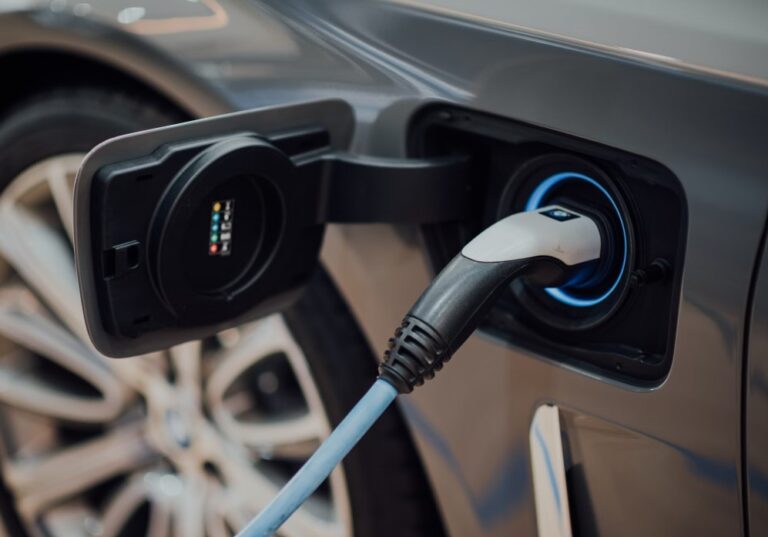Electric cars and hydrogen-powered automobiles have emerged as front runners in this era of environmental consciousness, symbolizing the promise of being cleaner and greener in terms of transportation.
The automotive industry has been thrown into a state of revolution as a result of the worldwide pursuit of environmentally friendly transportation, which has posed a challenge to the dominance of conventional vehicles powered by internal combustion engines.
In this article, we’ll explore these two innovative technologies looking into how they work, their advantages and disadvantages, and the ultimate objective of unraveling which is more sustainable.
Table of Contents
How electric cars work
The fundamental and incredibly brilliant idea behind electric automobiles is the transformation of electrical energy into mechanical energy, which the vehicle then uses to move forward. Modern, high-capacity batteries, such as lithium-ion ones, power them. Connecting the vehicle to a charging station allows the batteries to store electrical energy.
An electric motor, the vehicle’s engine, receives the stored energy and turns it into usable power. Due to their reduced number of moving parts and lack of need for complicated gearboxes, electric motors are more efficient than conventional internal combustion engines.
One common feature of electric vehicles is regenerative braking. The electric motor goes into reverse when the driver presses the brakes or slows down, turning the vehicle’s kinetic energy into electricity again. Recharging the battery with this recovered energy improves efficiency and increases the vehicle’s range.
How hydrogen cars work
When compared to electric vehicles, hydrogen cars, or fuel cell vehicles (FCVs), take a very different tack. Hydrogen vehicles eliminate the need for batteries by converting water and hydrogen gas into electricity through fuel cells. The capacity to store and use hydrogen gas as a fuel source is fundamental to a hydrogen vehicle. Internal high-pressure tanks house the compressed hydrogen.
The next step is to send the hydrogen gas to a stack of fuel cells. Anodes, cathodes, and an electrolyte membrane are the three main components of a fuel cell. The process of proton and electron separation from hydrogen molecules takes place at the anode. While electrons follow an external circuit, protons flow through the electrolyte membrane and generate an electric current.
A motor that runs on electricity is what really gets the car going. At the same time, airborne oxygen reacts with the protons and electrons at the cathode to produce water vapor. Emitting merely heat and water, this mechanism is extremely efficient.
Read also: Green hydrogen, all about the fuel revolutionizing the clean energy sector
Advantages and disadvantages of electric cars
The proliferation of charging facilities and improvements in battery technology have contributed to the meteoric rise in popularity of electric vehicles. The abundance of charging stations, which is particularly convenient in cities, is one of the main benefits of electric cars. The range of these cars is impressive, with many versions reaching over 300 miles on a single charge. A more convenient experience for users has been the improvement in charging times, particularly with the introduction of fast-charging stations.
Unfortunately, there are areas where electric vehicles encounter difficulties due to a lack of refuelling infrastructure. Potential customers may be put off by the fact that, despite advancements, charging still takes longer than filling up a conventional vehicle. Making and disposing of big, energy-dense batteries also has environmental consequences.
Advantages and disadvantages of hydrogen cars
One viable option for environmentally friendly transportation is hydrogen automobiles. Hydrogen and oxygen undergo a chemical reaction in these vehicles, producing energy with the sole byproduct being water vapor.
Customers will like the familiarity of the fast refuelling time, which is on par with that of conventional petrol cars. Hydrogen vehicles are ideal for long-distance travel due to their extensive driving range.
Hydrogen refuelling stations, in contrast to electric charging infrastructure, are not widely available. This presents an obstacle to broad acceptance. Because present methods frequently use fossil fuels, efficiently manufacturing and transporting hydrogen also poses environmental concerns.
Which is more sustainable: electric cars or hydrogen cars?
Rising usage of renewable energy sources to power homes and businesses has led many to believe that electric vehicles are better for the environment. The total ecological footprint of EVs is going down as the grid gets more sustainable. Researchers are also looking on ways to recycle and repurpose batteries to reduce their impact on the environment.
In contrast, hydrogen cars encounter problems with the long-term viability of hydrogen generation. Hydrogen extraction from natural gas, the most prevalent process, releases carbon dioxide into the atmosphere. Cleaner production methods are still in the works, although technology like electrolysis that uses renewable energy are not widely used just yet.
To a greater or lesser extent, electric vehicles are more efficient. Saving power in a battery directly is more efficient than converting it to hydrogen, delivering it, and then converting it back to electricity in the car. Each step adds energy loss.
Read also: European zero-emission road freight transport: a feasible goal by 2050












